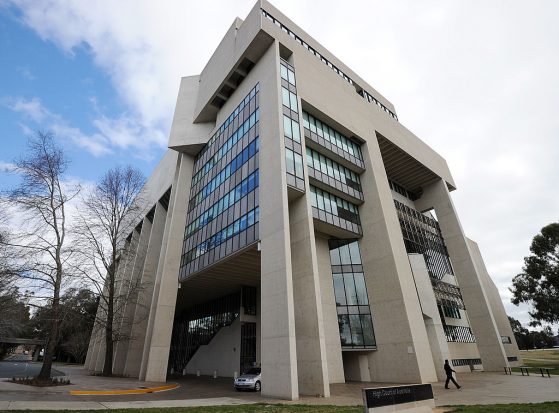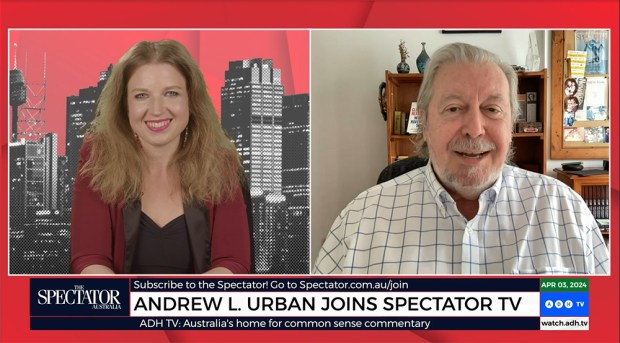 The dismissal of Cindy Prior’s case against three QUT students on Thursday drew sighs of relief from freedom lovers across Australia. Justice Jarret ruled that the Facebook comments made by the students did not represent a breach of section 18c of the Racial Discrimination Act. Many though are taking this opportunity to say ‘look, the case has been dismissed, therefore 18c is reasonable and nothing to worry about’. But nothing could be farther from the truth. The dismissal of the case only highlights the problems inherent in 18c.
The dismissal of Cindy Prior’s case against three QUT students on Thursday drew sighs of relief from freedom lovers across Australia. Justice Jarret ruled that the Facebook comments made by the students did not represent a breach of section 18c of the Racial Discrimination Act. Many though are taking this opportunity to say ‘look, the case has been dismissed, therefore 18c is reasonable and nothing to worry about’. But nothing could be farther from the truth. The dismissal of the case only highlights the problems inherent in 18c.
Even though ultimately the students have been exonerated of any wrongdoing in the eyes of the law, it took three years to get to this stage. In a long drawn out case like this one, the punishment is in the process, and these students and their families have had three long years of stress and worry over their financial futures, not to mention the invasion of their privacy as they became almost household names. Fortunately for them they were represented on a pro bono basis by Tony Morris QC, otherwise how else would they have afforded the hundreds of thousands of dollars of legal expenses required to defend themselves from this baseless accusation? Cindy Prior also has seen her complaint become a national talking point, even though the HRC could have advised her against pursuing a case that had a very slim chance of ever being successful. This complaint has seen public resources wasted and people’s lives forever changed.
As revealed by the IPA only three percent of complaints handled by the HRC ever make it to the courts. The 97 percent of claims that are handled internally by the HRC are conducted in secret and no details of these cases are made public. This is concerning, as the public has no way of assessing how 18c complaints are handled. One can assume that the conciliation process involves apologies and financial compensation. In the Prior case, several other students that were involved paid $5000 each during conciliation and in so doing, got themselves off the hook. If it wasn’t for the three students who stuck to their guns, the complaint would have succeeded in extorting thousands more dollars in compensation from innocent individuals, and the public wouldn’t have heard a word about it. How many more similar cases are conducted by the HRC in this manner?
If you want to avoid an 18c complaint what can you do? ‘Just don’t be offensive or insulting and you’ll be OK’ crowed the 18C cheerleaders. But even working within the confines of 18C and 18D isn’t enough to save you from being the subject of a vexatious complaint, just ask Bill Leak. His cartoon, although wrongly interpreted by many, was a comment on a very real problem in some remote Aboriginal communities as confirmed by the WA Police Commissioner Karl O’Callaghan. It alluded to truths and represented genuine and fair comment on an issue of public interest, and yet the HRC have not only accepted the complaint against the cartoon and Bill Leak but actively campaigned for people to come forward and do so. No doubt less gutsy and less well-supported cartoonists all over Australia will be toning down their message in the wake of this complaint or avoiding touchy subjects altogether. A tragedy for freedom of expression in Australia.
18c protects people we are told. It is there to protect minorities from racial hatred and vilification, and it helps us to fulfil our obligation to uphold the United Nation’s International Convention on the Elimination of All Forms of Racial Discrimination. But in truth, 18c doesn’t protect anyone. We already have laws in each state against racial vilification and incitement to violence. s 18C is only concerned with how people feel about an expressed opinion. How are we to have an open and frank public discourse on Aboriginal affairs, immigration or religion for instance, when people are reluctant to express their points of view because in the back of their minds they are thinking that somebody may take offence to such a degree that they initiate an HRC complaint? Suppressing opinion is the real danger to minorities. If troubling racist or xenophobic opinions aren’t publicly expressed, how can they be refuted or rightfully condemned by the general public?
As argued by Forrester, Finlay and Zimmerman in No offence intended: Why 18C is wrong, 18c is unconstitutional, as it infringes on our implied freedom of communication about government and political matters that are implied in our Commonwealth Constitution. It also attempts to protect a right that doesn’t exist: the right to not be offended. It is so broad and sweeping in its scope that one can’t hope to possibly know in advance if their comments will initiate the HRC complaint process. Cindy Prior’s rights and freedoms were not impinged upon when she took offence to the Facebook comments that the students posted after she removed them from the Oodgeroo Unit. She had the same freedoms all Australians have to ignore something they find offensive and move on with life.
Nicola Wright is a writer with LibertyWorks
Got something to add? Join the discussion and comment below.
Get 10 issues for just $10
Subscribe to The Spectator Australia today for the next 10 magazine issues, plus full online access, for just $10.

























Comments
Don't miss out
Join the conversation with other Spectator Australia readers. Subscribe to leave a comment.
SUBSCRIBEAlready a subscriber? Log in